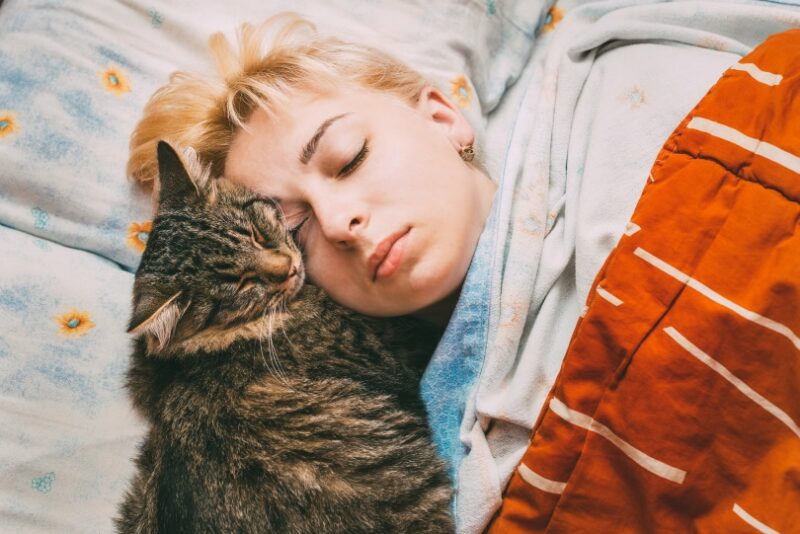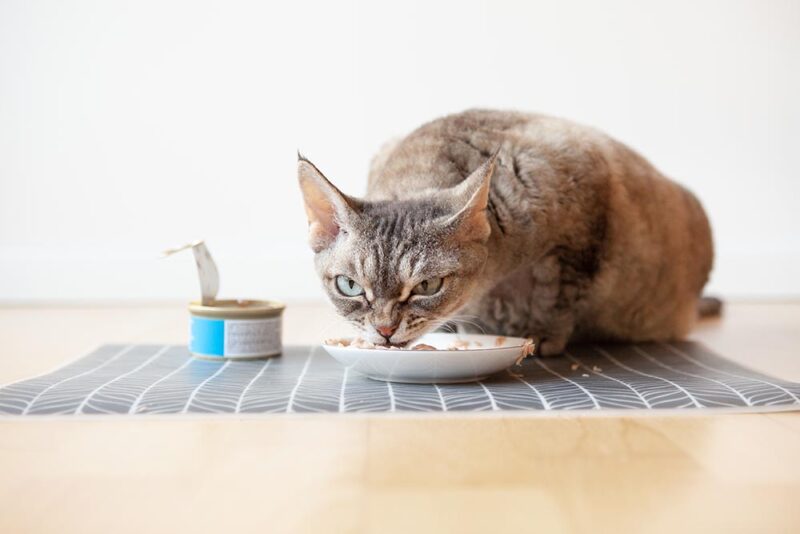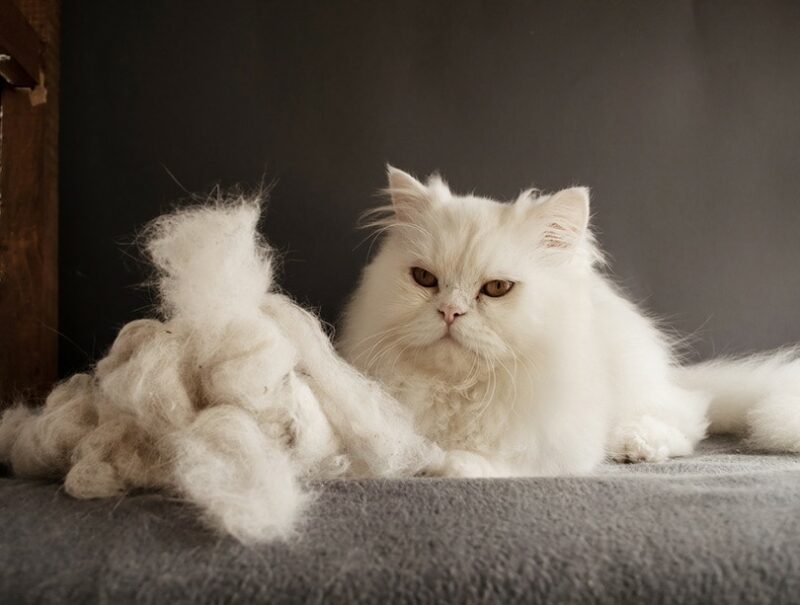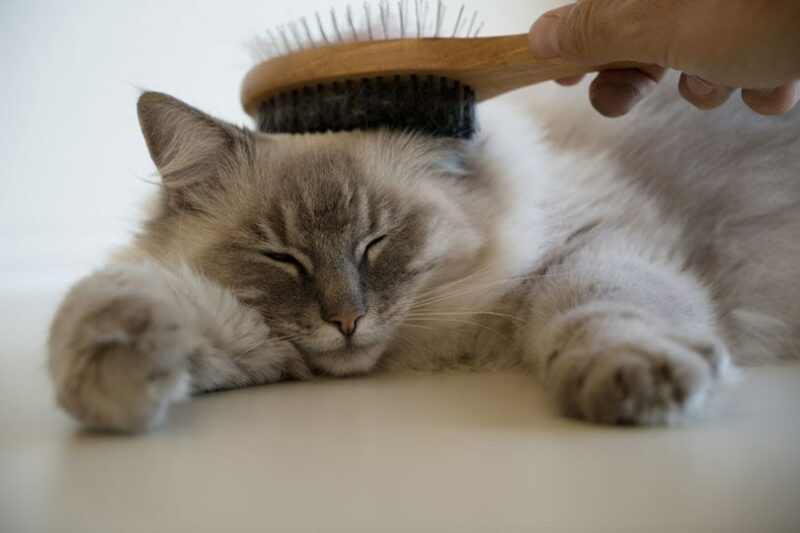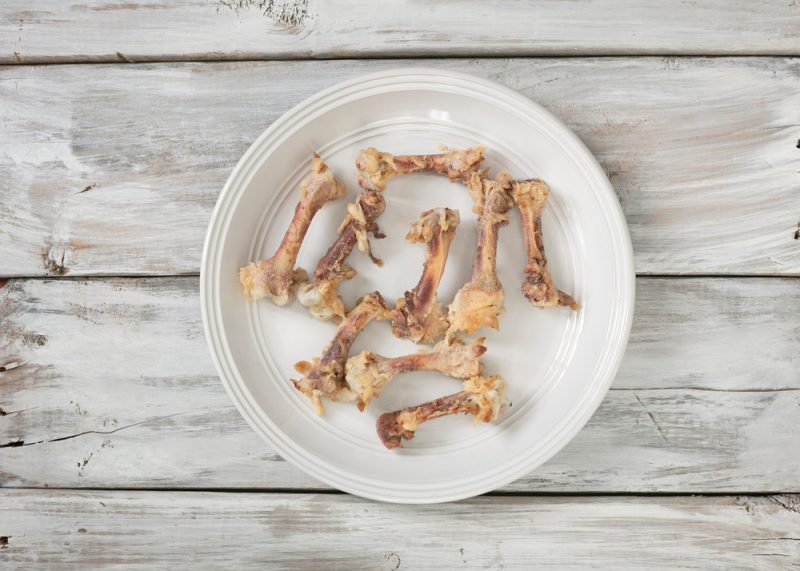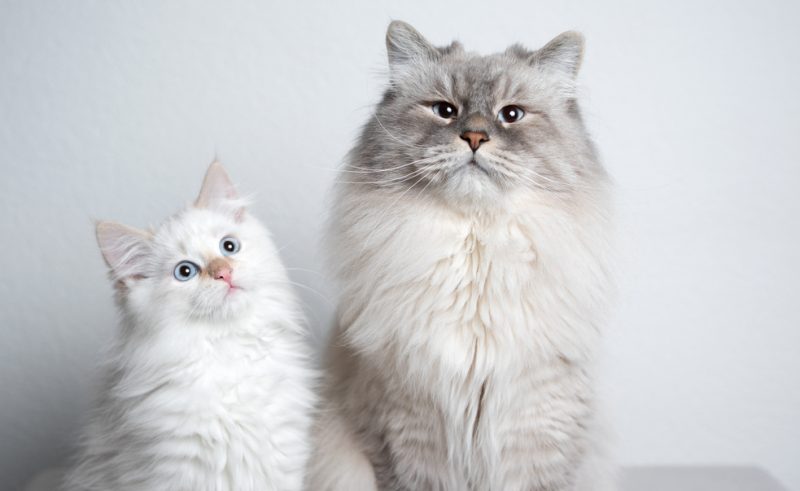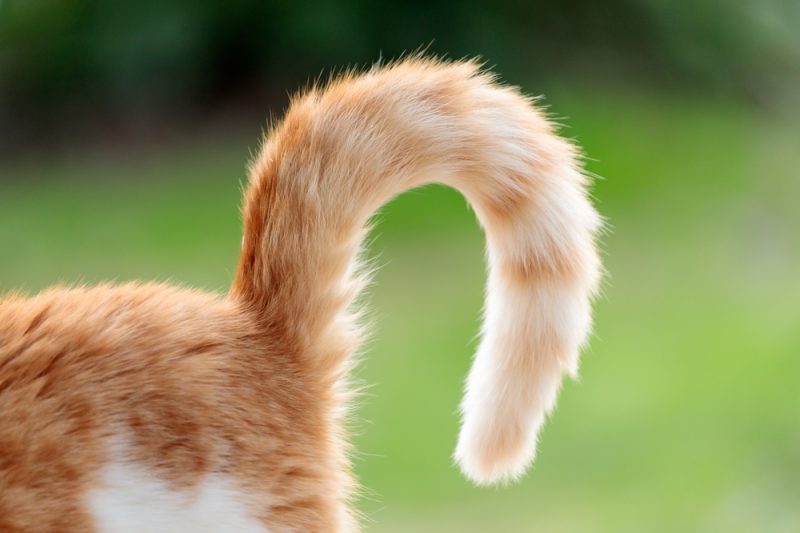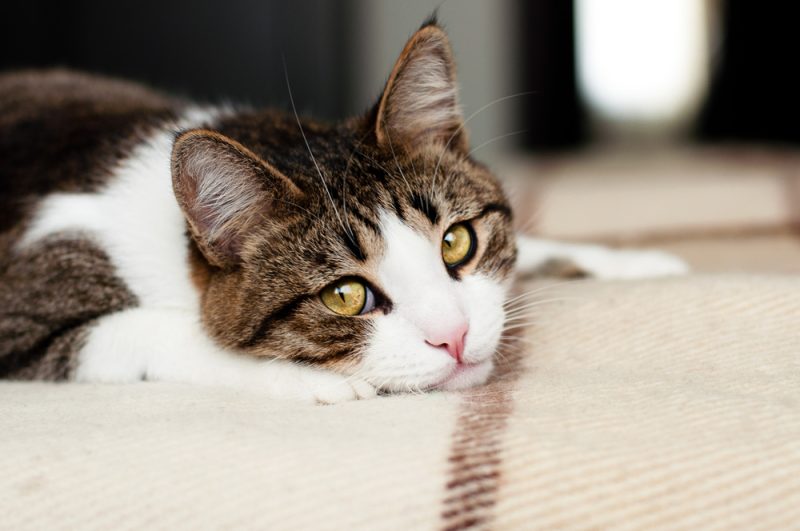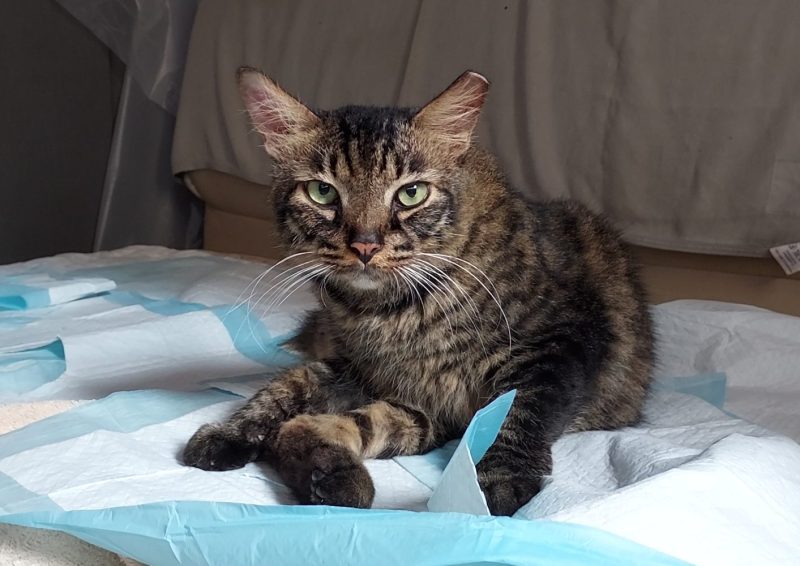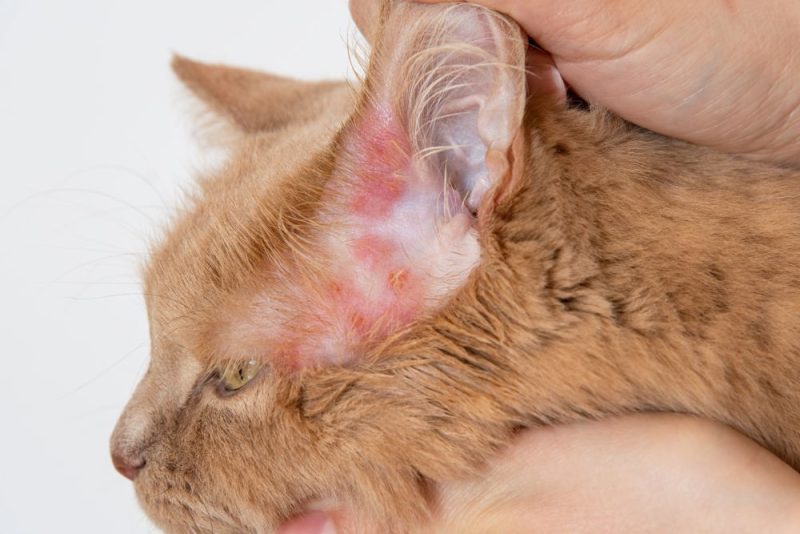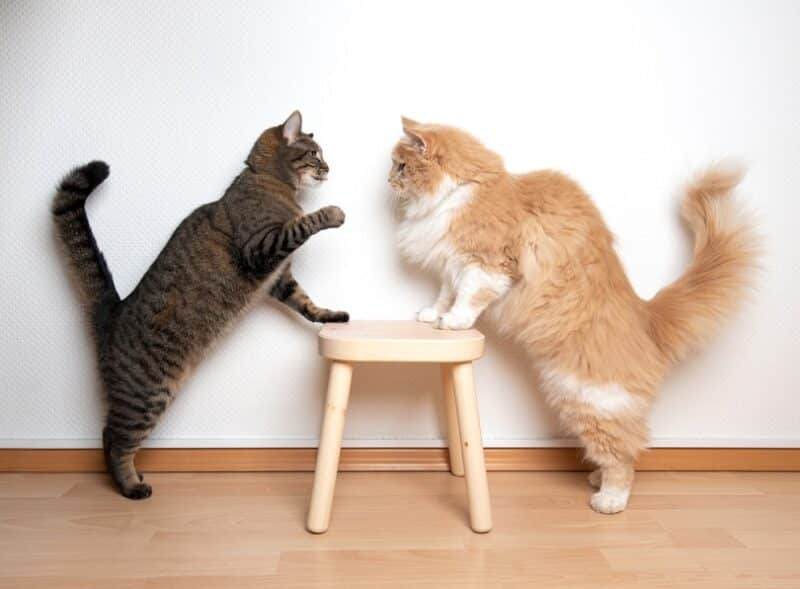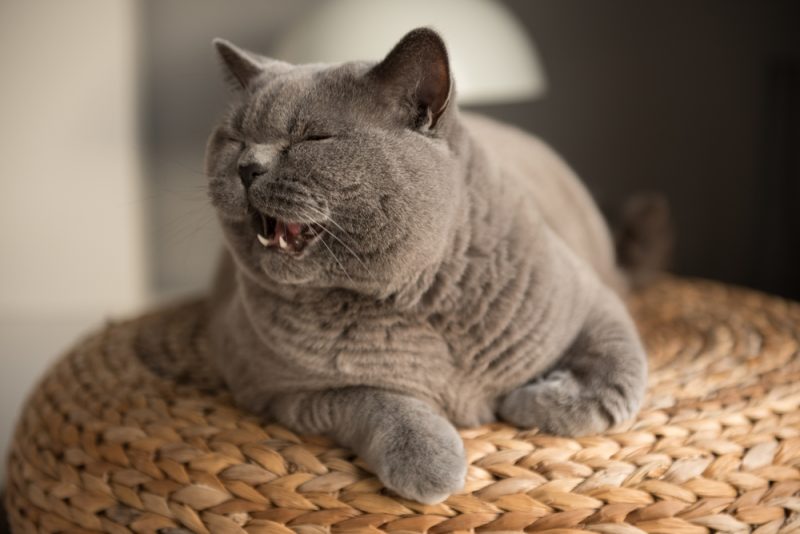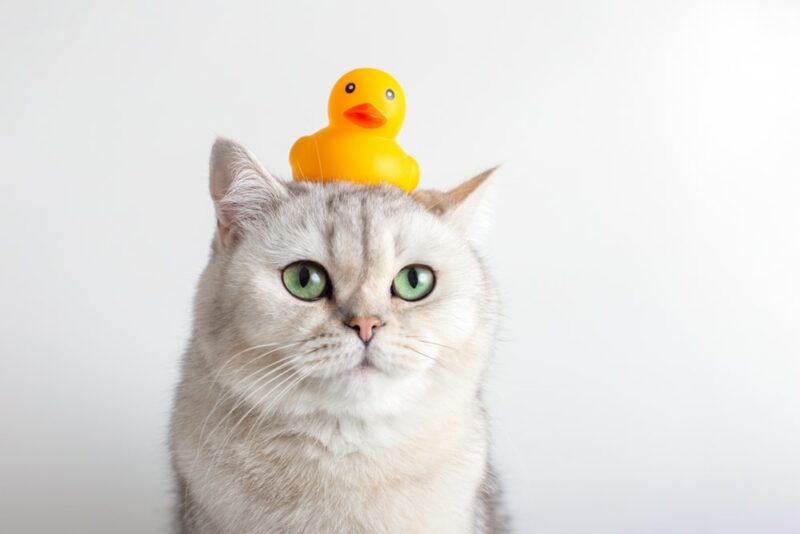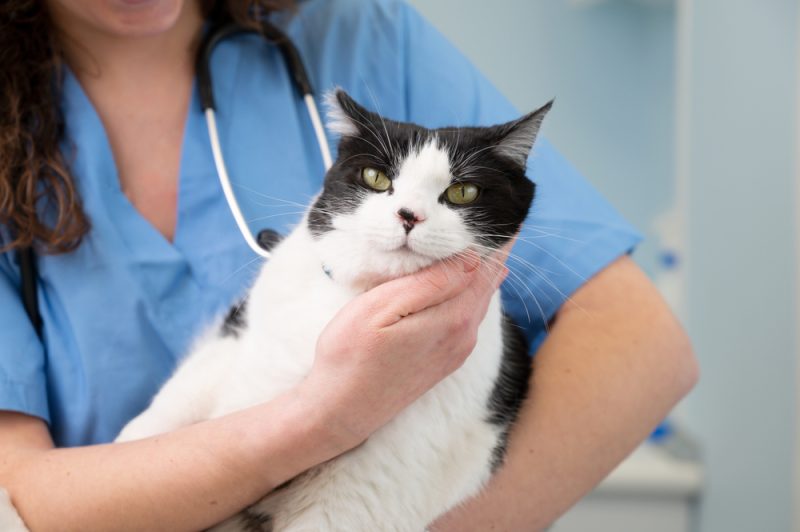In this article
View 2 More +Cat owners are no strangers to waking up with cat fur in their faces, followed by the faint sounds of a purring, content kitty. Cats are funny creatures and can sleep almost anywhere, but have you ever wondered why your cat sleeps on your pillow? What is it about your pillow that draws your cat near to sleep on it? Frankly, there are a few reasons why your cat chooses to sleep on your pillow, and it’s not just love and affection for you; however, that is one reason.
In this post, we’ll discuss five reasons why your cat chooses your pillow to rest so you know why you wake up to fur and purrs.

The 5 Reasons Why Your Cat Sleeps on Your Pillow
1. Love and Affection
Some cats are finicky and are typically much more independent than dogs, but this doesn’t mean they are incapable of showing affection toward you. Your cat will want to be near you when they show love and affection, and a prime place to show that affection is on your pillow. If you have a strong bond with your cat, your cat will want to be as close to you as possible, even when you’re sleeping.
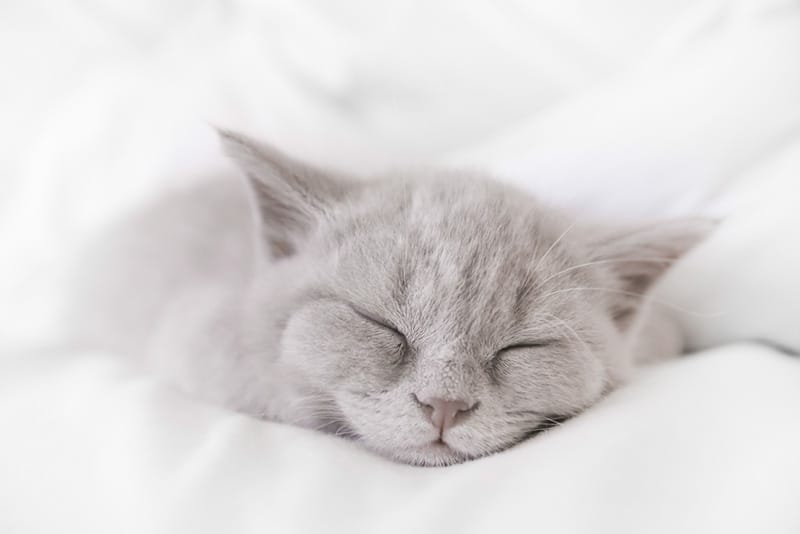
2. Seeking Warmth
Have you noticed that your cat always seeks a warm place to lie? Cats love to be warm, and the body heat from your head, combined with the coziness of your pillow, is prime real estate. This is particularly true for senior cats. Heat escapes through humans’ heads, making the pillow the warmest place in town for your cat. Cats have a warmer body temperature than humans, averaging around 102°F, which is why they prefer warm environments.
The pillow is also a better option for your cat rather than getting under the covers, which would be too hot. Your pillow provides enough warmth, and your cat can be warm and close to you simultaneously.
3. Trust and Protection
Cats have the instinct to be on alert, which is why they seek out high places to lie so that they can keep a watchful eye on their surroundings. In the wild, cats sleep in high places to avoid being attacked in their sleep, and domesticated cats carry this trait, too. When your cat sleeps on your pillow, they are showing that they trust you for protection and know they don’t have to be on full alert in your presence. Think of this as a huge compliment!
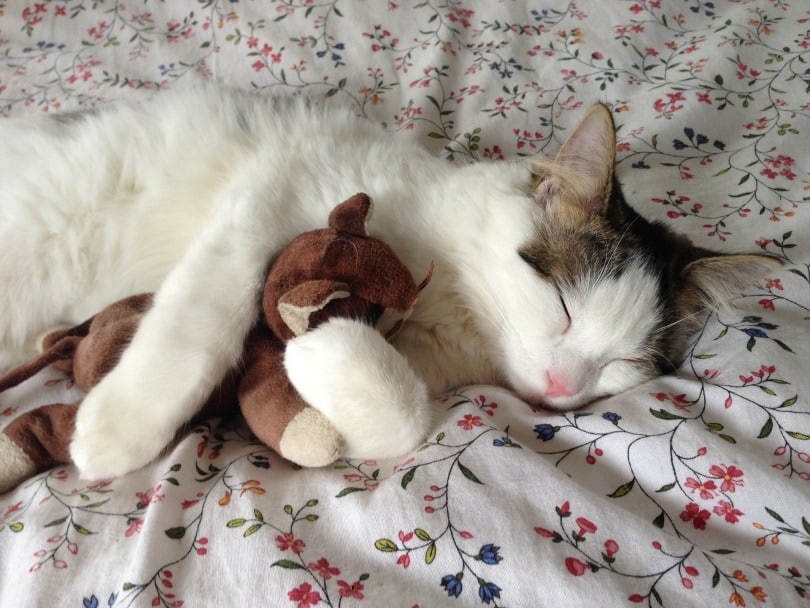
4. Your Scent
When you have bonded with your cat, your scent becomes a comforting smell. Your cat may seek out your pillow while you’re away because they miss you.
Your cat may also be attracted to the laundry detergent’s scent you use, or it could also be a shampoo’s scent your cat finds appealing. Cats have a powerful sense of smell. In fact, they have roughly 200 million scent receptors versus 5 million for humans, which gives you an indication of just how strong their sense of smell truly is.
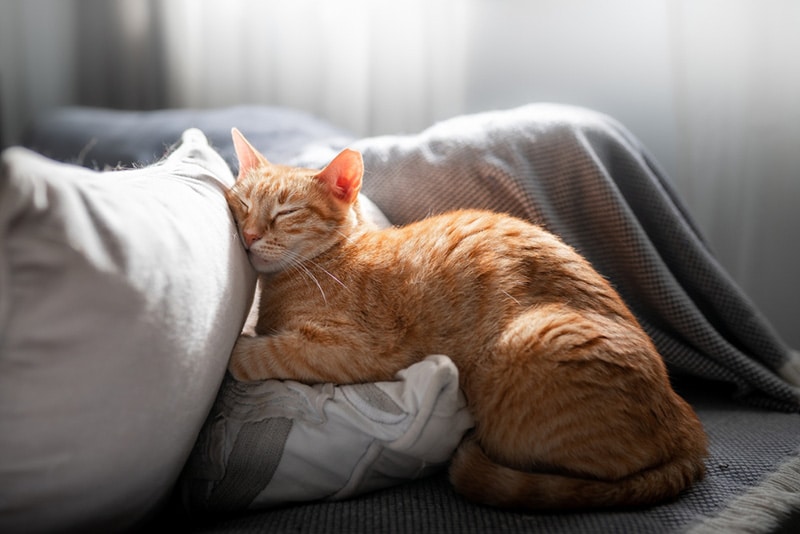
5. Stress/Anxiety/Fear
Lastly, your cat may be distressed. Seeking out your pillow is a way to ease fear and anxiety, especially if you have an anxious cat. You, the primary caregiver, are a source of comfort and protection for your cat, and cuddling up on your pillow with you can help ease that stress. In short, your cat may feel safe lying on your pillow when you’re in bed, particularly if you have a strong bond.
If you are concerned or have questions about your cat’s health, you can also speak to a vet from the comfort of your own home to help make a plan. They can determine when an in-clinic vet visit should be made.
If you need to speak with a vet but can't get to one, head over to PangoVet. It's an online service where you can talk to a vet online and get the advice you need for your pet — all at an affordable price!


Should You Allow Your Cat to Sleep on Your Pillow?
Whether or not you let your cat sleep on your pillow is a personal choice, but it’s important to be aware of the potential downsides. Many people find it comforting and enjoy the close bond it creates, while others may prefer to keep their pillow space to themselves for practical reasons.
If you or anyone in your household suffers from allergies or asthma, sharing a pillow with your cat might worsen symptoms due to dander and shed fur. Even for those without allergies, infectious diseases and hygiene can be an issue, as cats may carry traces of litter, dirt, or environmental debris on their paws.
If you decide to allow your cat on the pillow, consider using washable pillow covers and brushing your cat regularly to reduce shedding and allergens.
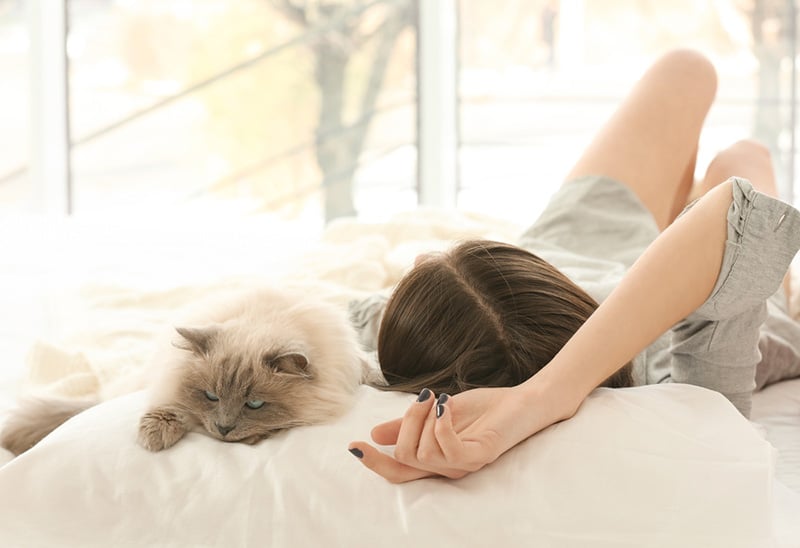
How to Remedy the Situation
If you decide you’d rather your cat didn’t sleep on your pillow anymore, breaking the habit can take time, but it’s absolutely possible. Cats are creatures of routine, and they usually don’t welcome sudden changes, so patience is key.
Start by providing your cat with an appealing alternative, such as a cozy bed or blanket placed somewhere warm and safe. Adding an old T-shirt or pillowcase with your scent can make it feel more familiar and comforting.
With consistency and a bit of encouragement, your cat will likely start choosing their new sleeping spot over your pillow.
 Final Thoughts
Final Thoughts
Sharing your pillow with your cat can feel sweet and comforting, especially if you enjoy the closeness and gentle sound of their purrs. If you’re happy to share your space, just keep hygiene and allergies in mind. But if you’d prefer your pillow to yourself, with a little patience and the right setup, your cat can learn to sleep somewhere else just as comfortably.
And if your cat seems unusually attached to your pillow or shows signs of stress or anxiety, it’s always a good idea to check in with your vet to rule out any underlying issues.
Read more about cats, beds, and cuteness on Catster:
- Let’s Talk: Do You Let Your Cat Sleep on Your Bed?
- Catster DIY: Make Your Own Triple Kitty Bunk Bed
- 5 Ways I’m Exactly Like a Cat
Featured Image Credit: KatinkavomWolfenmond, Pixabay
